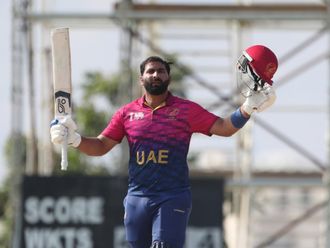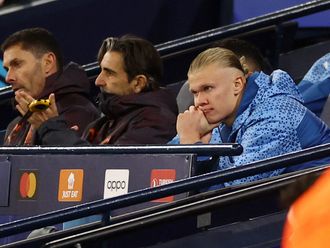Dubai: The International Cricket Council (ICC) on Thursday announced it has decided to reinstate the use of a Super Over in the case of a tie in the final of the ICC World Cup 2015 to be held in Melbourne on March 29.
The organisation’s board meeting in Dubai also approved the dates of ICC events through to 2019, including India hosting the 2016 Twenty20 World Cup from March 11 to April 3.
A Super Over will be used to decide the 2015 final if both sides score the same total from their 50 overs.
Another decision was to allow Pakistan pacer Mohammad Amir to return to domestic cricket played under the auspices of the Pakistan Cricket Board with immediate effect. Amir’s five-year ban following his involvement in the 2010 spot-fixing scandal in England was scheduled to expire on September 2.
An ICC statement said: “The ACSU Chairman [Ronnie Flanagan] had exercised the powers vested in him under Article 6.8 of the ICC Anti-Corruption Code after he was satisfied that Amir had cooperated with the ACSU by fully disclosing his part in the matters that led to his disqualification, admitting his guilt, showing remorse and cooperating with the Unit’s ongoing investigations and by recording messages for the ACSU education sessions.”
Meanwhile, the ICC — after discussions on player safety following the tragic death of Australia batsman Phillip Hughes during a first-class match late last year — has also decided to help improve the design of cricket helmets and follow the new British Safety Standard.
It was noted that helmet manufacturers have now introduced a number of new models that comply with the updated standard, and that an increasing number of international players have been choosing to wear them.
The ICC board also approved a change to the application of ICC Code of Conduct offences relating to slow over-rates in ICC events, so that captains do not carry any prior minor over-rate offence ‘strikes’ or suspensions from other series into an ICC event. This decision will mean that all captains enter the 2015 World Cup with no ‘strikes’ against their name, and they will only be suspended from playing in a World Cup match if over-rate offences are committed during the event.
The board received the annual anti-doping report and found there was a 17 per cent increase in drug testing in 2014 and, out of the 1,210 drug tests conducted across domestic and international cricket, none resulted in any violation.












